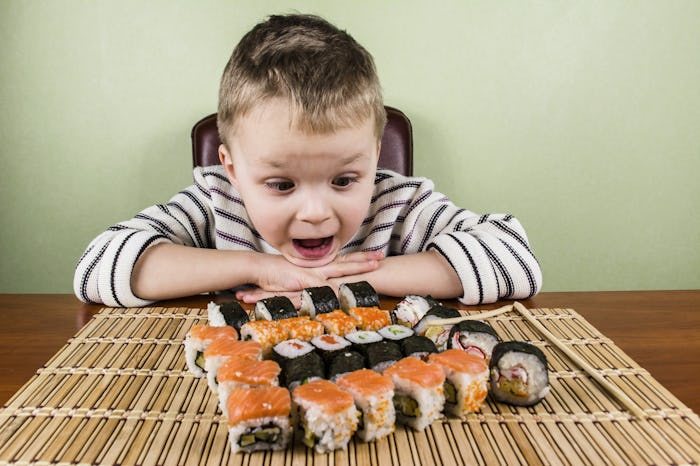Life

Here's When Your Child Can Eat Seafood
Every since I was a child, I've loved eating seafood. Though I'm very picky when it comes to the type of fish that I consume, I've never been one to turn down a good helping of it. I recall my older sister and I going fishing with my uncle on the weekends and helping my grandmother prepare it once we returned. Since I can't remember a time that I didn't eat seafood, I've always thought that there was no age restriction for children to consume it. However, once my sister starting researching, "when can my child eat seafood?," I learned I was definitely wrong.
According to Parents, it is recommended that children are kept away from fish until at least 9 months old. This includes things like sole, salmon, tuna, and more. Babies should be used to eating fruits, vegetables, poultry, and meat before seafood is brought into their diets. The aforementioned Parents article also noted that you should avoid feeding your children fish that are high in mercury like swordfish, shark, or tilefish. Additionally, you should be limiting their consumption of chunk tuna — which is lower in mercury — to only three to six ounces per week.
So what about shellfish? I mean, that is considered seafood, too, right? Although shellfish is in fact a form of seafood, Parenting noted that shellfish consumption may be best for your child after 2 years old since there's a high allergenic potential. However, according to Baby Center, your child can start eating shellfish as soon as they begin to eat solid foods if they do not have chronic eczema or other food allergies. Children with mild eczema or a family history of allergies can consume shellfish after they've been introduced to traditional foods without an allergic reaction.
Regardless of your child has had an allergic reaction or not, the aforementioned Baby Center article noted that parents should only introduce seafood into their children's diets when at home rather than at a restaurant or at daycare. Additionally, parents should try the food out for three to five days before moving to something different. That way, your child's reaction can be monitored and you will be able to solve any issues that arise as soon as they happen.
As with anything that you are not sure of though, be sure to consult your child's doctor first for their expert opinion.